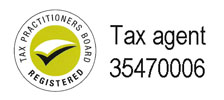Need to know: This article has been prepared using the contribution caps that apply in the current (2023-24) financial year.
Due to indexation, the concessional cap will increase to $30,000 per year and the non-concessional cap will increase to $120,000 per year from 1 July 2024.
The increase to the non-concessional cap also affects the bring forward rule.
Super contributions: The two basics you need to know
1. It’s all about the tax
The key to understanding different types of super contributions is to remember it’s all about what tax you pay. There are two main types of super contributions:
- Concessional (before tax) or tax deductible contributionsConcessional contributions are any of the contributions paid into your super account that receive a concessional (or lower) tax rate. As they are made from money that has not yet been taxed, concessional contributions are sometimes referred to as being before-tax contributions.
Concessional super contributions are taxed at the special low rate of 15% (if your income plus concessional contributions is under $250,000) to help you save for your retirement. For many people, this tax rate is lower than the marginal or top tax rate they pay on their income. There are several types of concessional (before-tax) contributions, but the most common ones are the contributions made by your employer into your super account and any salary-sacrifice contributions you decide to make.
- Non Concessional (after tax) or personal contributionsFor most employees, their employer’s SG contributions are part of their salary package and they are made from money that has not yet been taxed. When this money goes into your super account, it’s taxed concessionally at the special low rate of 15% (the contributions tax).
On the other hand, if you decide to make personal contributions into your super account, they can come from money that has already been taxed at your normal tax rate. These contributions are called non-concessional (or after-tax) contributions because tax has already been paid or deducted from the money you use to make the contribution.
You can also make personal contributions that are concessional by salary sacrificing or claiming a tax deduction for your personal contributions.
You may also receive contributions into your super account from the Australian Government if you meet certain eligibility criteria.
2. There are annual caps on your contributions
As there are tax benefits from holding savings in your super account, the government has strict annual caps or limits on both your concessional (before-tax) and non-concessional (after-tax) contributions into super.
The caps are indexed and any contributions you make over these annual limits are subject to extra tax. The limits apply to the total of all your super accounts across different super funds.
2024 Concessional Cap $27,500 combining employer and personal
2024 Non Concessional Cap $110,000
Both caps are increasing from 1st July 2024.
If you need further information please contact the office.

